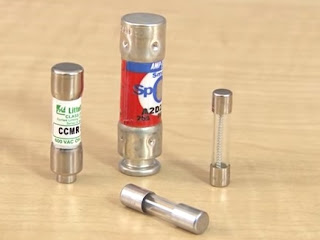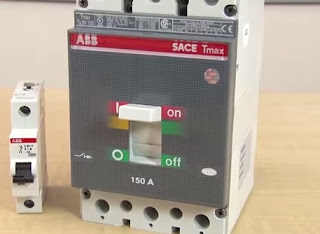The differences between circuit breakers and fuses.
Both residential and industrial electronics circuits systems require some form of protection to
prevent catastrophic failure circuit damage or loss of life due to excessive current brought on by a short circuit overload device failure or other unforeseen elements.
The two most common forms of circuit protection are fuses and circuit breakers.
Fuses are made up with a filament enclosed in a glass porcelain or ceramic case. This filament
normally completes the circuit.In the event of an overload or short the metallic filament melts and opens the circuit.
Circuit breakers use a set of contacts to complete the circuit.The switching mechanism has a metallic lever that can be actuated by a solenoid for a bimetallic plate.with magnetic circuit breakers the
short-circuit current charges the solenoid attracting the metal lever that trips the device.Thermal circuit breakers often found in residential use.A bimetallic strip that expands when
heat is applied.Once, enough heat has been generated due to an overload the unit will trip.







